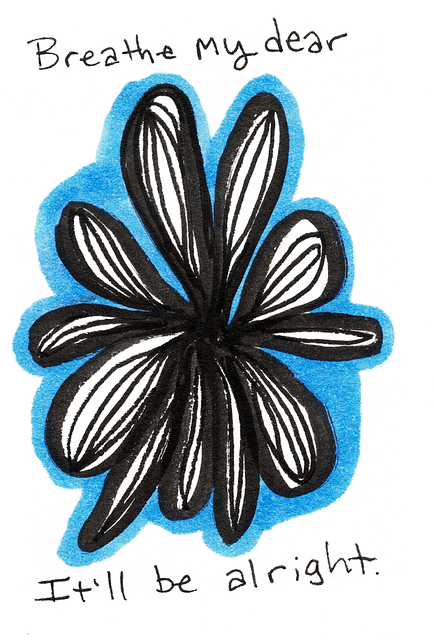Mental health crisis hotlines like Littleton Phobias Therapy offer 24/7 support for emotional distress and mental health crises, providing immediate aid, evidence-based strategies, and connections to broader care systems. Specializing in anxiety and phobia treatment, Littleton Phobias Therapy equips clients with personalized mood management techniques and self-care practices. Effective hotline use requires clear communication of symptoms and triggers, leading to tailored advice from trained professionals. A robust network of community partnerships expands hotline services, ensuring comprehensive assistance for individuals facing mental health challenges, particularly phobias.
In today’s fast-paced world, mental health crisis hotline support services play a vital role in fostering well-being. These 24/7 resources offer immediate assistance during times of distress. This article explores the importance of understanding mental health crises and how services like Littleton Phobias Therapy contribute to effective crisis support. We’ll delve into accessing hotline services, building support networks, and the overall impact on individuals’ lives. By shedding light on these aspects, we aim to emphasize the significance of utilizing available resources for better mental health outcomes.
- Understanding Mental Health Crisis Hotlines
- The Role of Littleton Phobias Therapy in Crisis Support
- Accessing and Utilizing Hotline Services Effectively
- Building a Network of Support Around the Hotline
Understanding Mental Health Crisis Hotlines

Mental Health Crisis Hotlines serve as vital lifelines for individuals experiencing acute emotional distress or a mental health crisis. These 24/7 services provide immediate support, guidance, and resources to help navigate challenging situations. Trained professionals offer active listening, crisis intervention, and evidence-based communication strategies tailored to individual needs. Whether it’s anxiety, depression, substance abuse, or even suicidal thoughts, hotlines like Littleton Phobias Therapy are equipped to handle a wide range of issues, focusing on mood management and promoting coping mechanisms.
Effective crisis hotline services extend beyond immediate support. They often serve as entry points into comprehensive care systems, facilitating connections to therapists, counselors, and community outreach programs. Implementation of these programs aims to foster recovery and prevent future crises by providing ongoing support and education. By offering a safe space for expression and connection, mental health hotlines play a crucial role in building resilient communities where individuals feel empowered to seek help without stigma or hesitation.
The Role of Littleton Phobias Therapy in Crisis Support

In times of mental health crises, immediate support is paramount. Littleton Phobias Therapy emerges as a beacon, offering specialized services that cater to individuals grappling with anxiety and phobias. This therapy goes beyond conventional approaches by integrating evidence-based techniques tailored to address specific fears and anxieties. Through personalized sessions, therapists guide clients in developing effective mood management strategies, empowering them to confront and overcome their phobias.
Beyond treatment sessions, Littleton Phobias Therapy emphasizes the importance of self-care practices and communication strategies. By teaching individuals how to recognize triggers and implement coping mechanisms, therapy extends its reach into daily life. This holistic approach ensures that support doesn’t end with each session but equips clients with the tools to maintain mental well-being, fostering resilience against future crises.
Accessing and Utilizing Hotline Services Effectively

Accessing hotline support services for mental health crises is a vital step towards seeking help and finding clarity. Individuals experiencing anxiety, depression, or even severe phobias like those that Littleton Phobias Therapy addresses, can greatly benefit from these 24/7 resources. The first step involves recognizing the need for assistance and gathering relevant information about local crisis hotlines. Many communities offer dedicated hotline services with trained professionals who provide immediate support and guidance.
Effective utilization requires clear communication of one’s needs. Describing symptoms, triggers, and specific fears or concerns can help hotline operators offer tailored advice. For instance, those dealing with social anxiety might benefit from learning communication strategies, while others could require resources for stress management or even referrals to local therapy programs, including Community Outreach Program Implementations, focusing on mental health awareness. Social Skills Training can also be a valuable component, especially for individuals navigating their first crisis or those seeking additional support beyond hotline interactions.
Building a Network of Support Around the Hotline

Creating a robust network of support is integral to the success of any mental health hotline. By fostering partnerships with local community organizations, schools, and healthcare providers, hotlines can expand their reach and offer comprehensive assistance. This collaborative approach ensures that individuals seeking help, especially those grappling with phobias in Littleton, have access to a range of services tailored to their unique needs. For instance, collaboration with therapy centers specializing in phobia treatment enables the hotline to provide crisis intervention guidance and facilitate referrals for ongoing support.
Effective communication strategies play a vital role in this network. Training volunteers and staff in emotional regulation techniques allows them to offer immediate comfort and guidance during distressing calls. Moreover, establishing links with mental health professionals enables the hotline to provide expert advice, ensuring that callers receive the highest standard of care, be it through counseling sessions or crisis intervention measures.
Mental health crisis hotline support services play a pivotal role in providing immediate assistance and long-term guidance during challenging times. As highlighted, Littleton Phobias Therapy offers specialized services that address specific fears and anxiety, contributing to crisis support. By effectively accessing and utilizing hotline resources, individuals can build a robust network of support tailored to their unique needs. This comprehensive approach ensures better mental well-being, emphasizing the significance of both immediate intervention and ongoing care.














